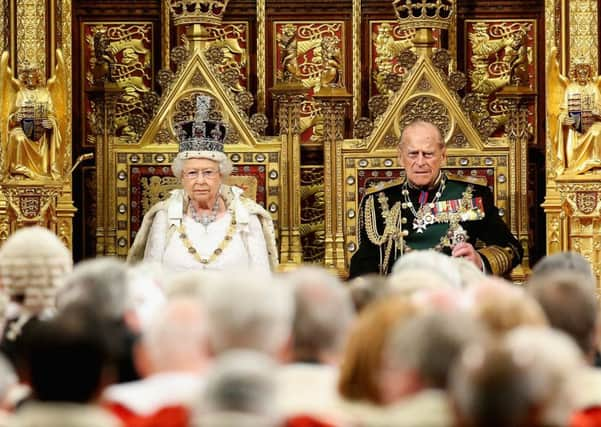Philip Norton: A smaller Lords is vital for public trust


Democracy – demos kratia – is about how people choose to govern themselves. In a representative democracy, the choice of who is to govern is fundamental.
In the United Kingdom, we choose a Government through elections to the House of Commons, a Government who are responsible for a programme of public policy and accountable for that policy to the electors at the next election. There is core accountability.
Advertisement
Hide AdAdvertisement
Hide AdWe have the benefit of a second Chamber that fulfils tasks that add value to the political process without challenging that core accountability. As my colleague Professor Colin Tyler, a specialist in democratic theory, put it in evidence to the Joint Committee on the Draft House of Lords Reform Bill, if you “divide sovereignty within Parliament”, you undermine the capacity of Parliament to give effect to the will of the people.
We have a Chamber that draws on experience and expertise to complement the work of the elected House of Commons. By general consent, this House does a good job. Debate about Lords reform focuses primarily on composition, not on functions – there is a general agreement about the functions of a complementary second Chamber.
The House of Lords Reform Bill in 2012 was premised on the House continuing to do its existing job. But of course composition and functions are intrinsically linked; who is in the House determines how effectively the functions are fulfilled.
We are a legitimate Chamber, but whereas the Commons takes its legitimacy for granted through election, our legitimacy has to be earned through the work that we do.
Advertisement
Hide AdAdvertisement
Hide AdWe therefore need to ensure that we are working effectively and efficiently; we need to ensure that the quality of what we do is maintained.
We know from the Ipsos MORI poll of 2007 that electors considered the two most important factors in determining the legitimacy of this House to be trust in the appointments process and in considering legislation carefully and in detail.
Seventy-six per cent considered trust in the appointments process to be very important, while 73 per cent thought the same for considering legislation carefully and in detail. Some element of election came way below.
It is three years almost to the day since I initiated a debate on the size of the House. It was clear then that there was a problem; the problem is even greater now. As we have heard, of legislative chambers that meet regularly throughout the year, we are the largest.
Advertisement
Hide AdAdvertisement
Hide AdIt is true that the Chinese National People’s Congress has more Members, but it meets for only about two weeks each year. It is true that we have a smaller membership than existed prior to the 1999 Act; the difference is in terms of activity and perception.
There is a justified expectation now that those created as peers should contribute to the work of the House. The level of activity places a burden on the resources of the House, and on the public purse. Any inactivity reflects badly on the House, since we appear to be carrying passengers. So either way there is a problem.
We need to address size, which necessarily entails not only reducing numbers but also, as we have heard, controlling future appointments. That is where public perception becomes important.
Some noble Lords appear to say that this is not too important: it is only perception. We do not exist in a vacuum. The more we grow in number, the more the media draw attention to our size, whatever good work we do.
Advertisement
Hide AdAdvertisement
Hide AdIndeed, as we have heard, that coverage masks the work of this House: that is the reality. New creations will be pored over by the media to see if someone has been a party donor. It only takes one for the media to generalise about the whole. Whatever we say, that will remain the case. We therefore need to move from deprecating such activity – or simply ignoring it – to doing something practical about it.
We need to establish a Select Committee to address the various options for reducing the size of the House. The sooner we get under way and the sooner the committee reports, the better. It need not be a lengthy exercise. It may not succeed, but it is an essential start.
Lord Norton of Louth is a Conservative peer and Hull University academic. He spoke in a Lords debate on the number of peers. This is an edited version.